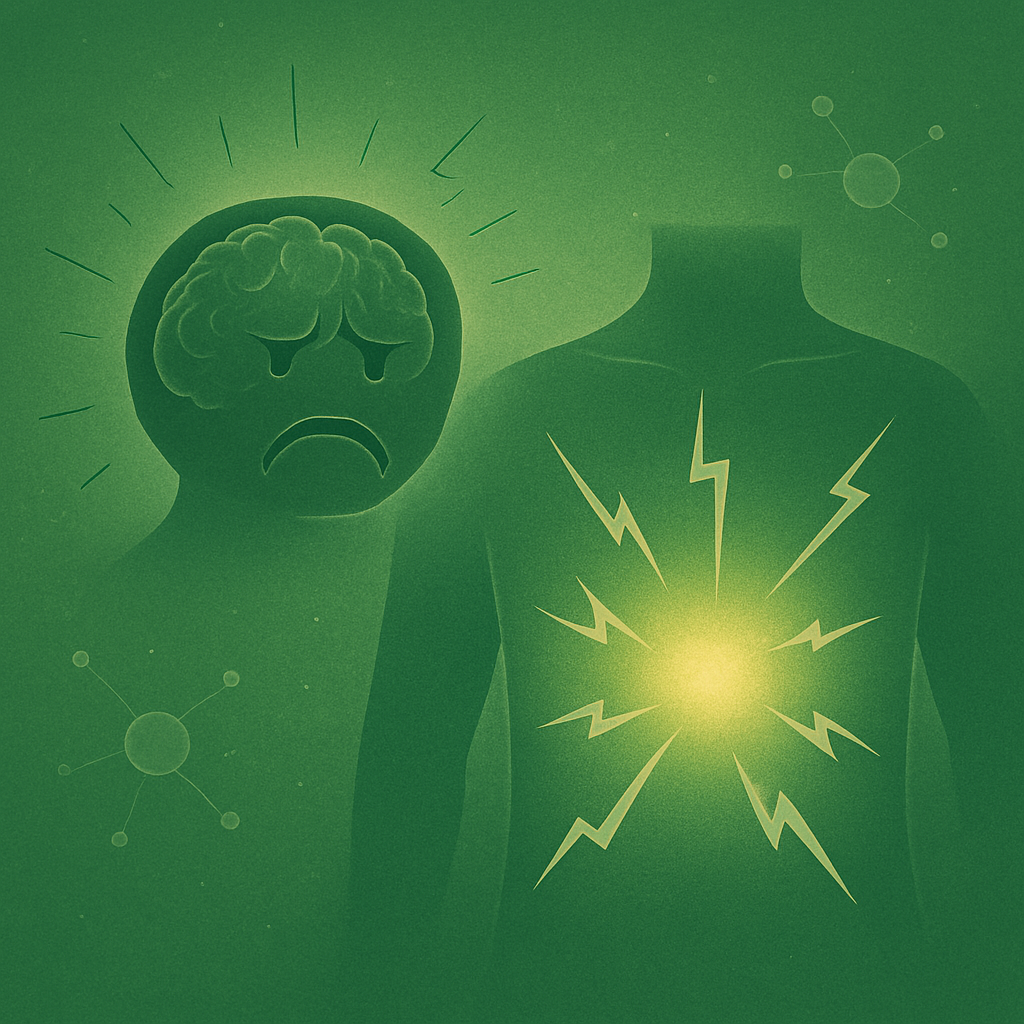What Are Psychosomatic problems?
Psychosomatic problems occur when emotional or psychological distress manifests as physical symptoms. These symptoms are real and can affect various parts of the body, but they often don’t have a clear medical cause. Common examples include:
– Chronic pain (e.g., headaches, back pain)
– Digestive issues (e.g., irritable bowel syndrome or IBS)
– Fatigue or low energy
– Skin conditions (e.g., eczema or psoriasis flare-ups)
– Cardiovascular symptoms (e.g., high blood pressure or heart palpitations)
These symptoms may worsen during periods of stress, anxiety, or emotional distress.
These problems highlight the powerful link between mental and physical health and can significantly impact your overall well-being. If you’ve been experiencing unexplained physical symptoms, it’s important to consider whether psychological factors might be playing a role.
How Do Psychosomatic problems Develop?
Psychosomatic problemsoften arise from:
- Chronic Stress: Prolonged stress can trigger the release of stress hormones like cortisol, which may disrupt bodily functions and lead to physical symptoms.
- Unresolved Emotional Trauma: Past trauma or unresolved emotional pain can “store” itself in the body, leading to chronic pain or other physical issues.
- Anxiety and Depression: These mental health conditions can alter how the brain processes pain and other physical sensations, making you more susceptible to physical symptoms.
- Behavioral Factors: Psychological distress can lead to unhealthy behaviors, such as poor sleep, lack of exercise, or unhealthy eating habits, which can further exacerbate physical symptoms.
How Can Psychosomatic problems Be Treated?
The good news is that psychosomatic problems have long been recognized in the history of psychotherapy, and effective treatments have been developed to address them. Evidence-based approaches can help manage both the psychological and physical aspects of these conditions Here’s some of treatments:
- Psychotherapy approaches:
– Cognitive Behavioral Therapy (CBT): CBT helps you identify and change negative thought patterns and behaviors that may be contributing to your physical symptoms.
– Mindfulness-Based Therapies: Techniques like mindfulness and meditation can help you manage stress and reduce the impact of psychological factors on your body.
– Somatic Experiencing: This therapy focuses on releasing stored emotional trauma from the body, helping to alleviate physical symptoms.
– Psychoanalysis: In psychoanalytic therapy by exploring unconscious conflicts, unresolved emotions, and deep-seated patterns, psychoanalysis helps individuals understand and process their emotional pain, leading to a reduction in physical symptoms. Research and clinical practice show that addressing the root psychological causes can significantly improve both mental and physical well-being, making psychoanalysis a powerful tool in the treatment of psychosomatic conditions.
2. Stress Management:
Learn effective stress-reduction techniques, such as deep breathing, progressive muscle relaxation, or guided imagery, to calm your mind and body.
3. Lifestyle Changes:
you can develop healthier habits, such as improving sleep, incorporating regular exercise, and adopting a balanced diet, to support both your mental and physical health.
4. Collaborative Care:
If needed, psychotheraist can collaborate with your medical providers to ensure a comprehensive approach to your treatment, addressing both the psychological and physical aspects of your condition.
When to Seek Help
If you’ve been experiencing physical symptoms that don’t have a clear medical explanation, or if your symptoms worsen during times of stress or emotional difficulty, it may be time to explore the role of psychological factors. Seeking help from a qualified therapist can provide you with the tools and support you need to heal both your mind and body.
Your mind and body are deeply connected—healing one begins with understanding the other.


